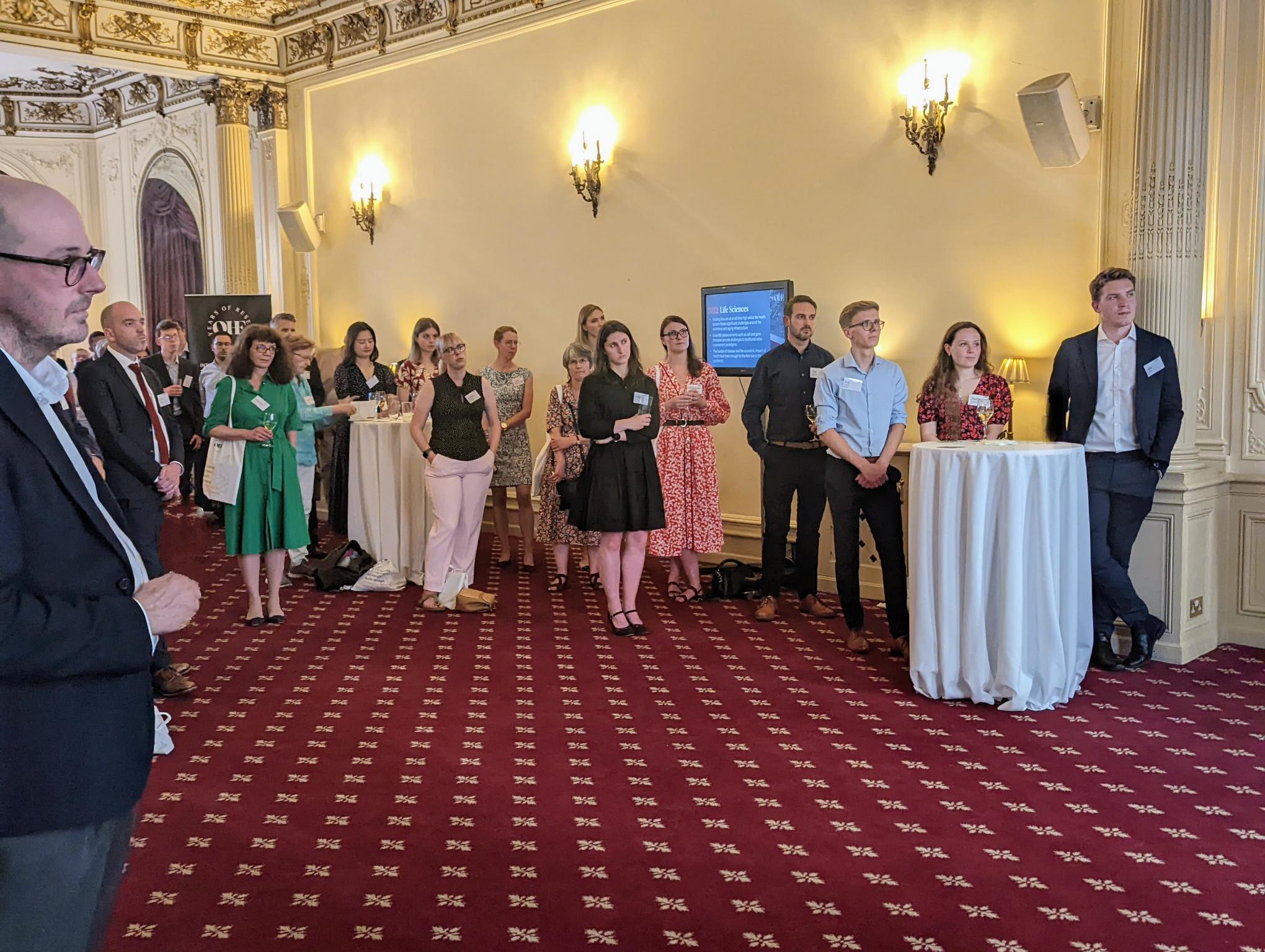Unlocking the Value of Combination Therapies



OHE presents a series of lunchtime seminars throughout the year. The most recent seminar, held in late April, considered the influence of cost-effectiveness and other factors on NICE decisions. OHE presents a series of lunchtime seminars throughout the year. The…
OHE presents a series of lunchtime seminars throughout the year. The most recent seminar, held in late April, considered the influence of cost-effectiveness and other factors on NICE decisions.
OHE presents a series of lunchtime seminars throughout the year. The most recent seminar, held in late April, considered the influence of cost-effectiveness and other factors on NICE decisions. Led by OHE’s Prof Nancy Devlin and Helen Dakin of the University of Oxford, the seminar discussed research recently completed by them in collaboration with OHE’s Yan Feng and Phill O’Neill, Nigel Rice of the University of York, and David Parkin, senior visiting researcher at OHE.
Established in 1999, the National Institute for Health and Clinical Excellence (NICE) undertakes appraisals of selected technologies and issues guidance intended to ensure quality and value for money. Its decisions are binding within the NHS and potentially also affect decisions by health technology assessment bodies and payers in other countries. Understanding what factors actually affect NICE decisions, then, is important for life sciences companies, other stakeholders and patients worldwide.
The research discussed at this OHE lunchtime seminar has three objectives: estimating the cost-effectiveness threshold apparent from NICE’s observed decisions, identifying which factors other than cost effectiveness affect or explain NICE’s decisions, and evaluating whether either of these has changed over time. The seminar’s discussion focused on the first two; the third is in progress.
Included in the basic model for this research were the factors deemed most likely to affect NICE’s decisions : (1) incremental cost-effectiveness ratios (ICERs); (2) clinical evidence, hypothesising that NICE will reject a technology with insufficient clinical evidence; (3) insights provided by stakeholders, hypothesising that involvement increases the chance of approval; (4) when the technology is the only treatment available for a given disease, hypothesising that NICE is more likely to recommend it; (5) whether the technology is for the treatment of children, on the grounds that NICE says it gives ‘the benefit of the doubt’, given methodological challenges in measuring health outcomes in children; (6) publication date, to capture whether NICE decisions have changed through time; and (7) severity of the underlying illness, as NICE states that it accepts higher ICERs for treatments for serious conditions.
A wide range of other variables also was included in extended modelling. These included exploring the effect on decisions of the introduction of the single technology appraisal (STA) process and the use of end-of-life criteria and whether decisions differ systematically across disease area and appraisal committees.
Most of the data for the research were derived from HTAinSite, a commercial database of NICE decisions developed by the OHE, Abacus and City University. An overview of the analytic approach is included in the presentation (above).
The research found that ICERs are by far the strongest predictor, alone explaining 81% of NICE’s decisions. While some variables other than cost effectiveness are significant, their contribution to the ability of the model to predict “yes” and “no” decisions is relatively weak. The “best” model suggests that the average decision with an ICER of £42,000 has a 50% chance of being approved/rejected.
Next steps in the research include sensitivity and subgroup analysis to refine the model specification.
A paper reporting these results will be released as an OHE Research Paper in the coming months and also will be submitted to be a journal.
For further information about this research, please contact – Nancy Devlin or Helen Dakin.
An error has occurred, please try again later.
This website uses cookies so that we can provide you with the best user experience possible. Cookie information is stored in your browser and performs functions such as recognising you when you return to our website and helping our team to understand which sections of the website you find most interesting and useful.
Strictly Necessary Cookie should be enabled at all times so that we can save your preferences for cookie settings.
If you disable this cookie, we will not be able to save your preferences. This means that every time you visit this website you will need to enable or disable cookies again.
This website uses Google Analytics to collect anonymous information such as the number of visitors to the site, and the most popular pages.
Keeping this cookie enabled helps us to improve our website.
Please enable Strictly Necessary Cookies first so that we can save your preferences!
